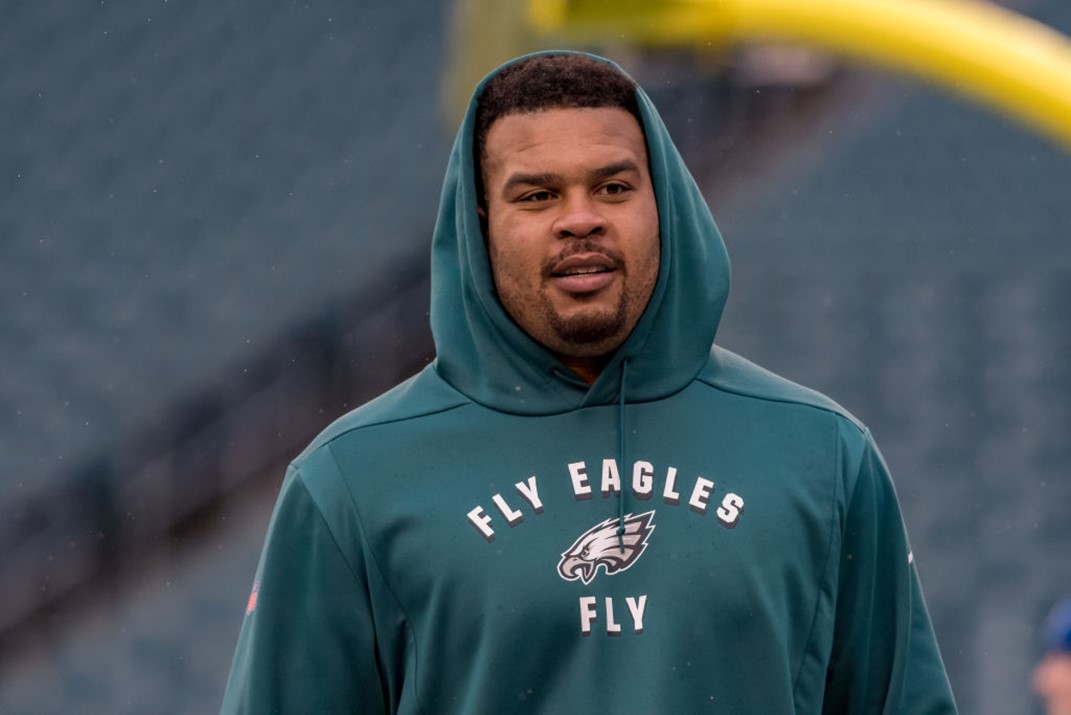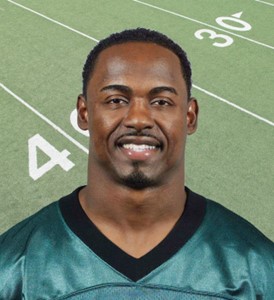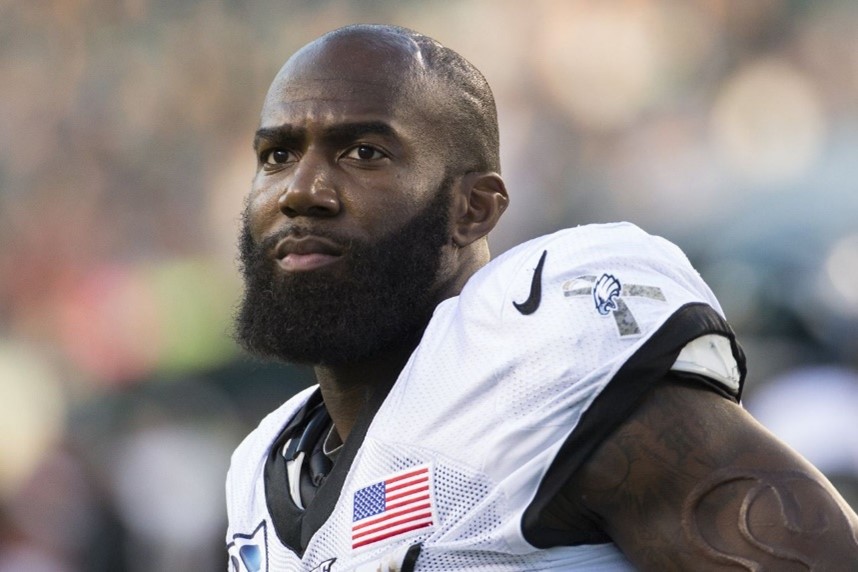This year for Black History Month, as we highlight Black athletes who have been open about their mental health struggles, we could not help but tie it in to the big sporting event that also happens this month: Super Bowl LVII. For the first time in NFL history, two Black quarterbacks are starting: Kansas City Chiefs’ Patrick Mahomes and Philadelphia Eagles’ Jalen Hurts.
As the Eagles go on to represent Pennsylvania in the game with Lane Johnson who has been open about his mental health, a few former players have also spoken out about and advocate for mental health: Brandon Brooks, Brian Dawkins, and Malcolm Jenkins.
Brandon Brooks

In 2019, offensive lineman Brandon Brooks admitted he was sidelined from a game due to an overwhelming and debilitating bout of anxiety.
The following day he wrote on Twitter, “I’d like to address what happened yesterday. I woke up, and did my typical routine of morning vomiting. It didn’t go away like it normally does, but I figured it would calm down once I got to the stadium. It did, but I felt exhausted. The nausea came back, and I tried to battle through it and went out for the first drive,” he wrote. “The nausea and vomiting came back until I left the field, and tried everything I could to get back for my teammates but just wasn’t able to do it.”
Understandingly, his teammates and coaches had his back. Eagles coach Doug Pederson said “It’s something that he’s dealing with each and every day of his life. You never really know what triggers it. We’re here to support him, we love him. It is unfortunate that it happened, but it’s something that he deals with every single day. We’re just going to continue to support him.”
Though Brooks would end up retiring in 2021 due to injury, Eagles chairman and CEO Jeffrey Lurie, in a statement, called Brooks, “one of the most thoughtful and bravest athletes I have ever been around.
“Brandon’s willingness to openly discuss his own struggles with anxiety has served as an inspiration to so many, and helped open the door for future conversations among athletes and role models everywhere.”
Brian Dawkins

In 2018, during his induction speech at the Pro Football Hall of Fame, Brian Dawkins revealed his struggle with depression and suicidal thoughts. Early in his NFL career, he turned to alcohol and had to fight off suicidal thoughts.
However since then, Dawkins has found ways to deal with that depression: his faith and daily routine.
“I do specific things daily in the morning and at night to make sure that I’m operating in a place that I want to be in,” Dawkins said, “that I’m making sure I tell my body to shut up and get in line.”
Dawkins said every morning when he wakes up he spends at least 20 minutes praying, meditating and writing in a journal. He also focuses on breathing techniques, something he began doing after joining his wife at Lamaze classes. He was fascinated that breathing techniques could help women manage pain while giving birth, so he began to use those techniques himself during his football days.
“I’ve taken ownership of it,” Dawkins said. “It belongs to me.” Dawkins realizes that everyone will have different things that work for them, but he’s invested in sharing his own experiences to help anyone who might be listening. And a lot of that simply starts with a refreshing reminder that mental health shouldn’t come with a stigma at all.
Malcolm Jenkins

Malcolm Jenkins is a two-time Super Bowl champion with the Saints and Eagles.
Jenkins spoke at Michelle Obama’s Beating the Odds Summit at Howard University in 2019, talking to a crowd of first-generation college-bound students about the pressures they face and how to deal with them.
“I know for me, mental health wasn’t anything we talked about when I was in school. But… I am in therapy once a week at this point in my life because I recognize that I’m somebody who’s responsible for a lot of things, and I put a lot of pressure on myself, and so with that comes stress and a little anxiety,” Jenkins said.
For Jenkins, it is a combination of weekly therapy and talking to students about the psychological effects of racism that helps him cope with anxiety and depression.
According to the American Journal of Men’s Health, masculine norms among American men continue to influence behavior and a general aversion to engage in self-help for mental health, particularly compared to women. Even though depression and suicide are a leading cause of death in men, social and self-stigma restrains men from acknowledging their problems and seeking help. As stated succinctly by the Journal, “American men are subjected to a culture where the standards of masculinity are literally killing them.”
In a hopeful sign of changing culture, Pilgram reports that Generation Z is more apt to report and pursue help than prior generations – regardless of gender. Perhaps the reluctance is beginning to fade due to more people speaking out like these former Eagles players.
If you would like to speak to someone about better managing your stress and anxiety, or to make an appointment, please call (717) 782-6493 for more information.
Resources:
- Brandon Brooks of the Philadelphia Eagles couldn’t play due to bout with anxiety (nbcnews.com)
- Eagles’ Brandon Brooks retires as star player, mental health champion (delawareonline.com)
- Eagles Legend Brian Dawkins Shares His Powerful, Refreshing Message on Mental Health – NBC10 Philadelphia (nbcphiladelphia.com)
- Malcolm Jenkins talks to students about mental health – ProFootballTalk (nbcsports.com)
